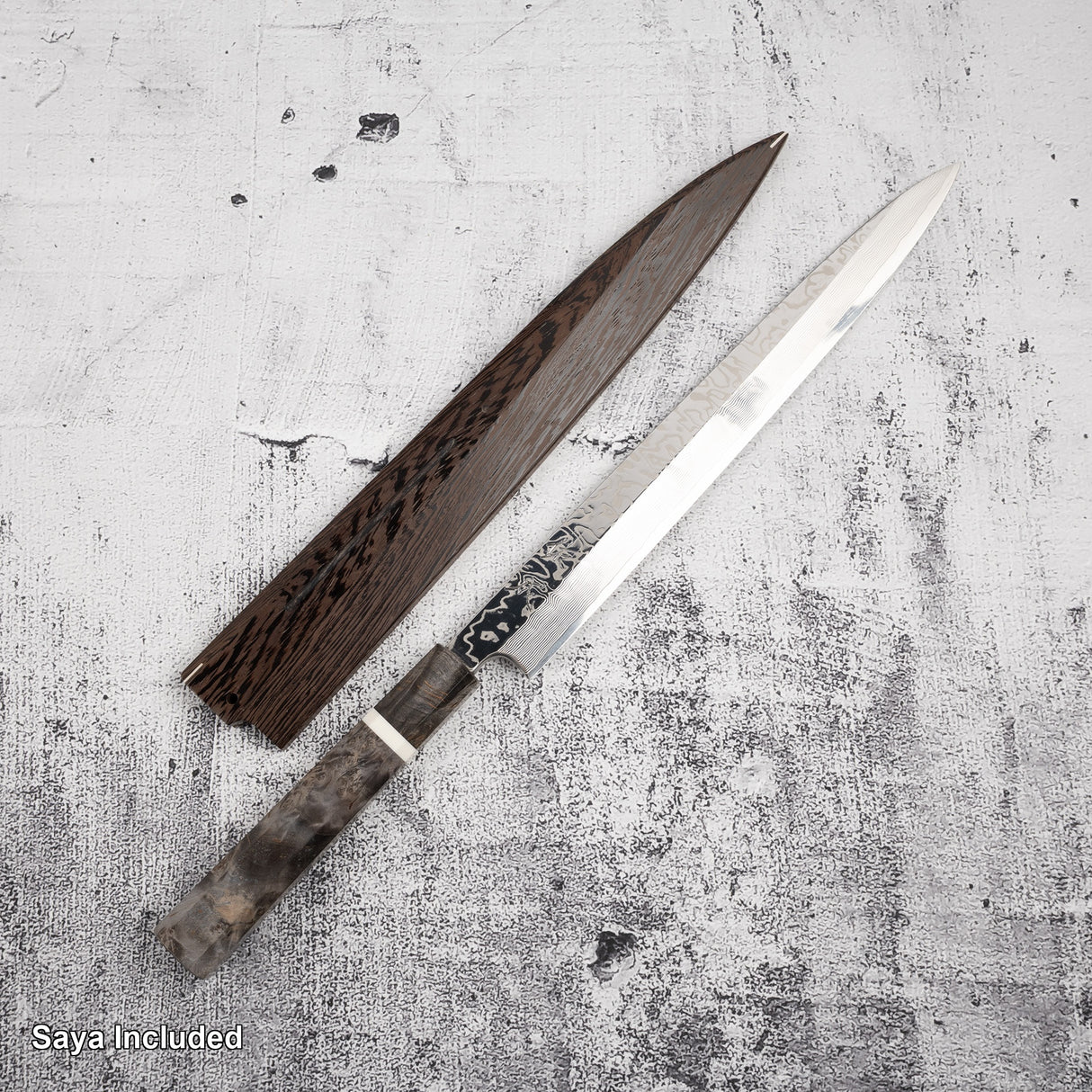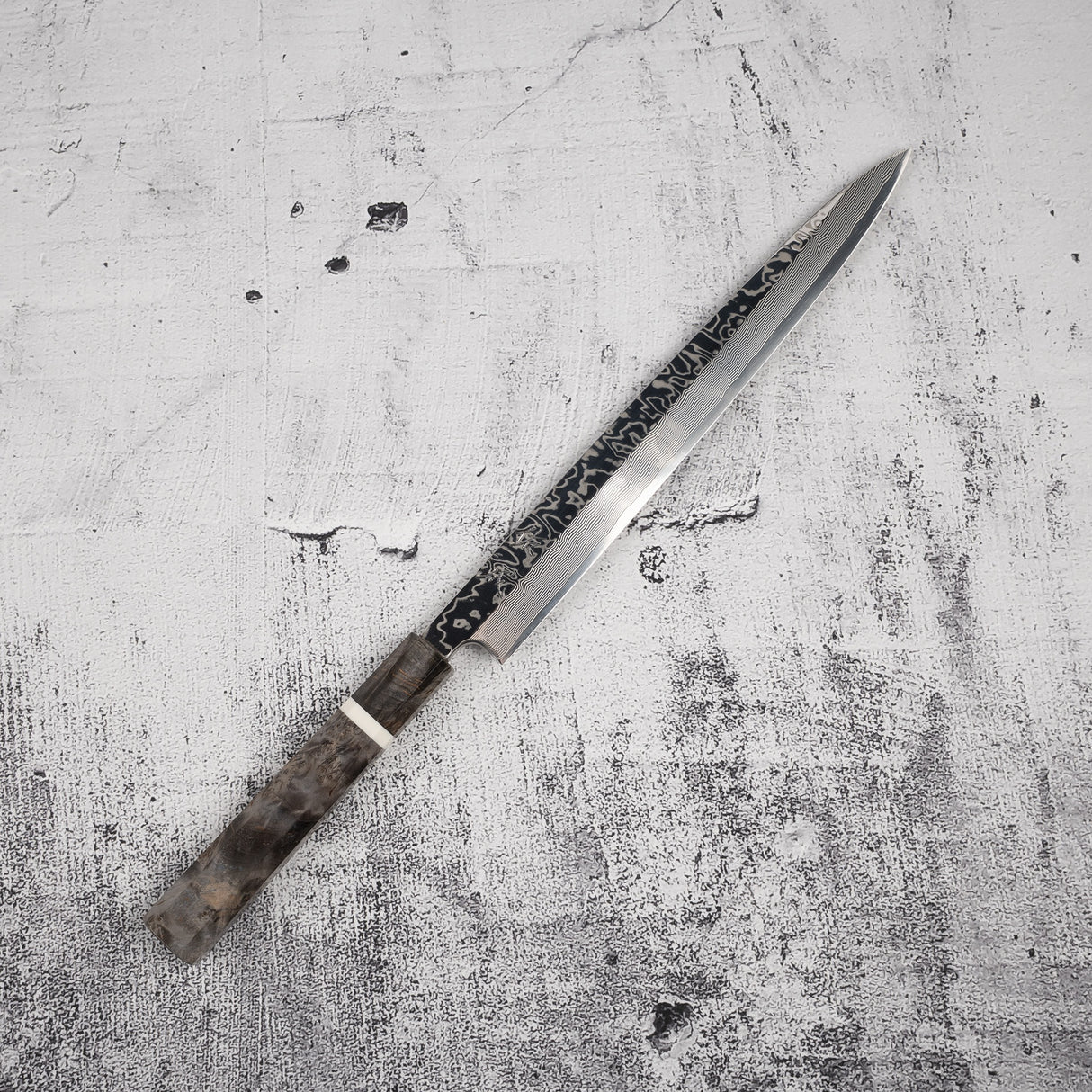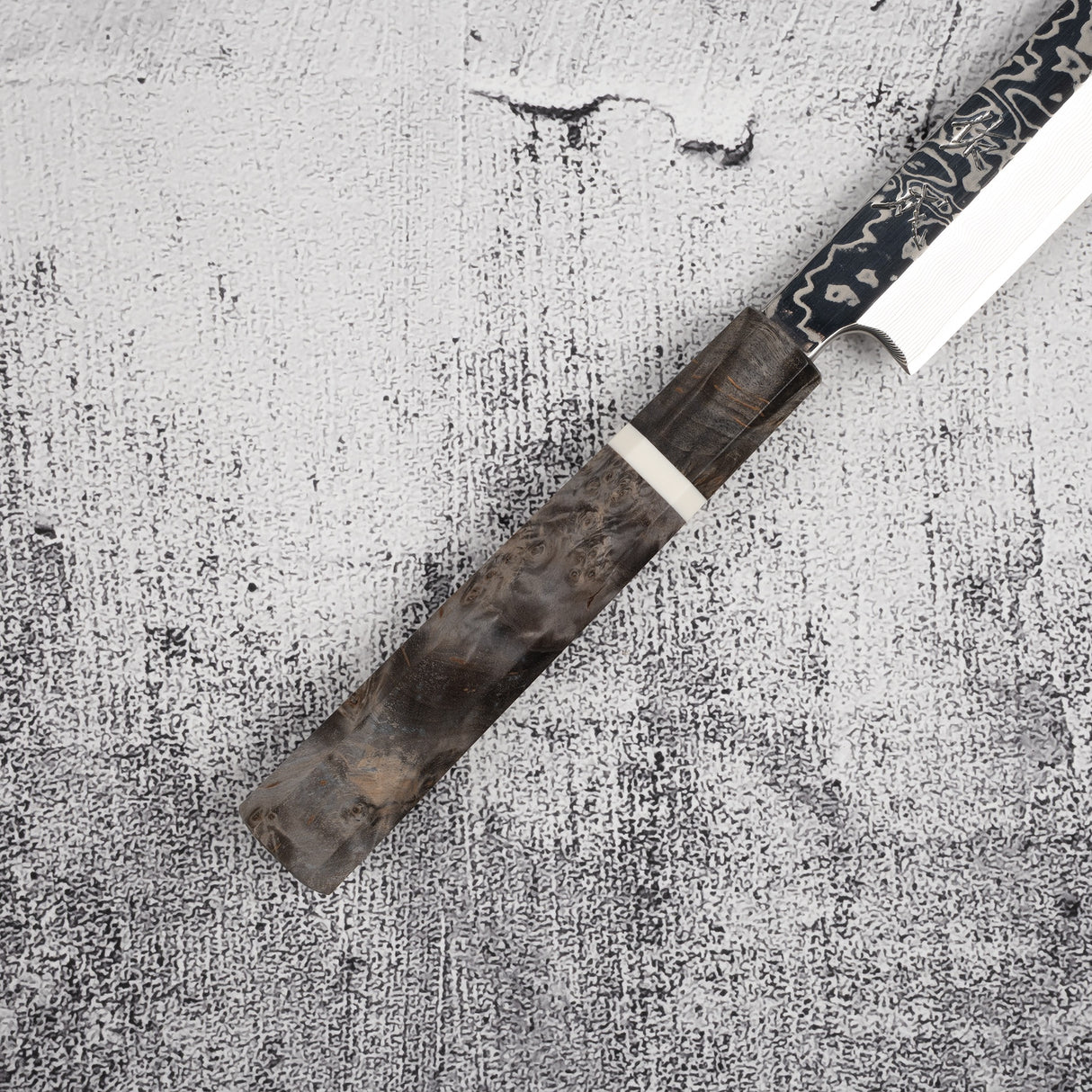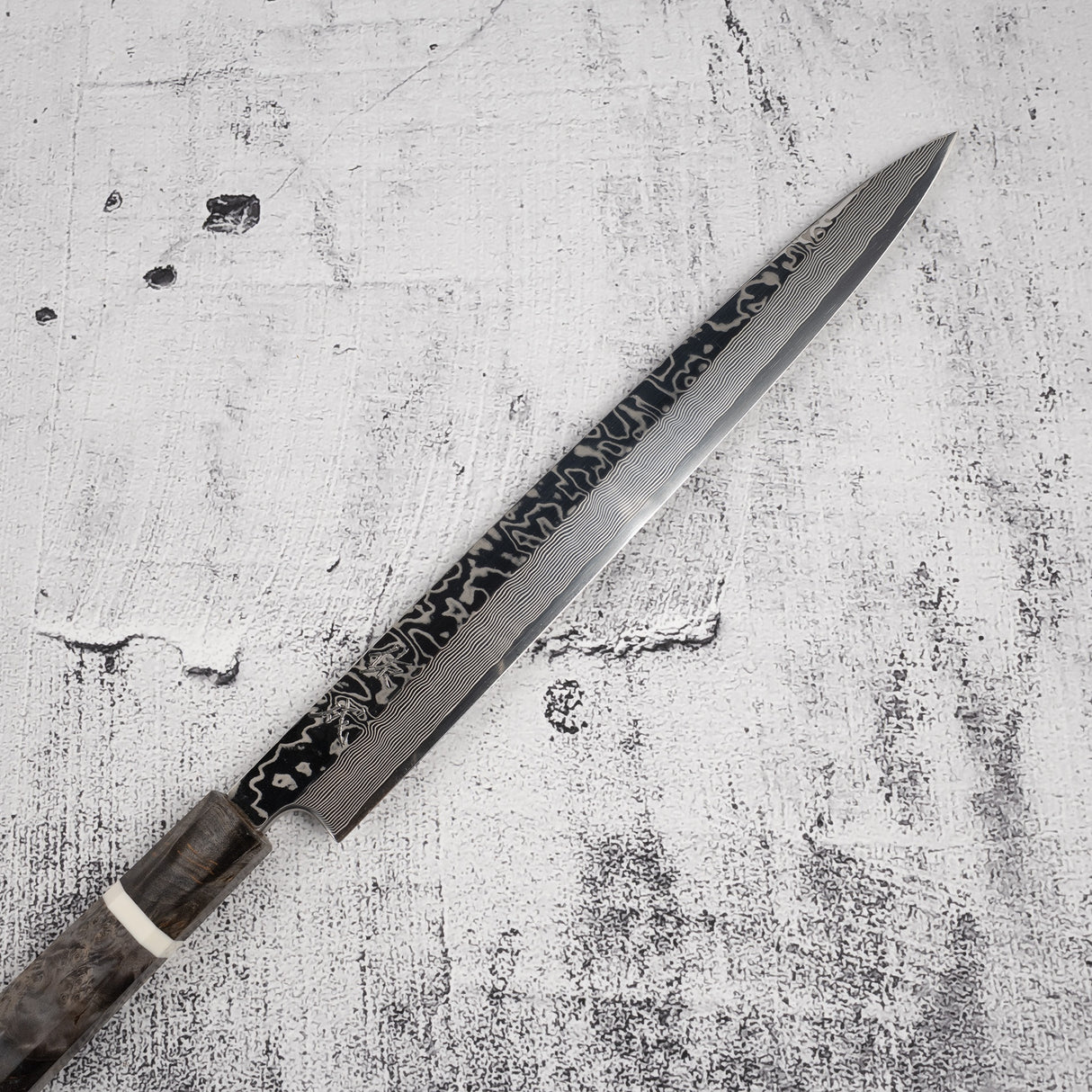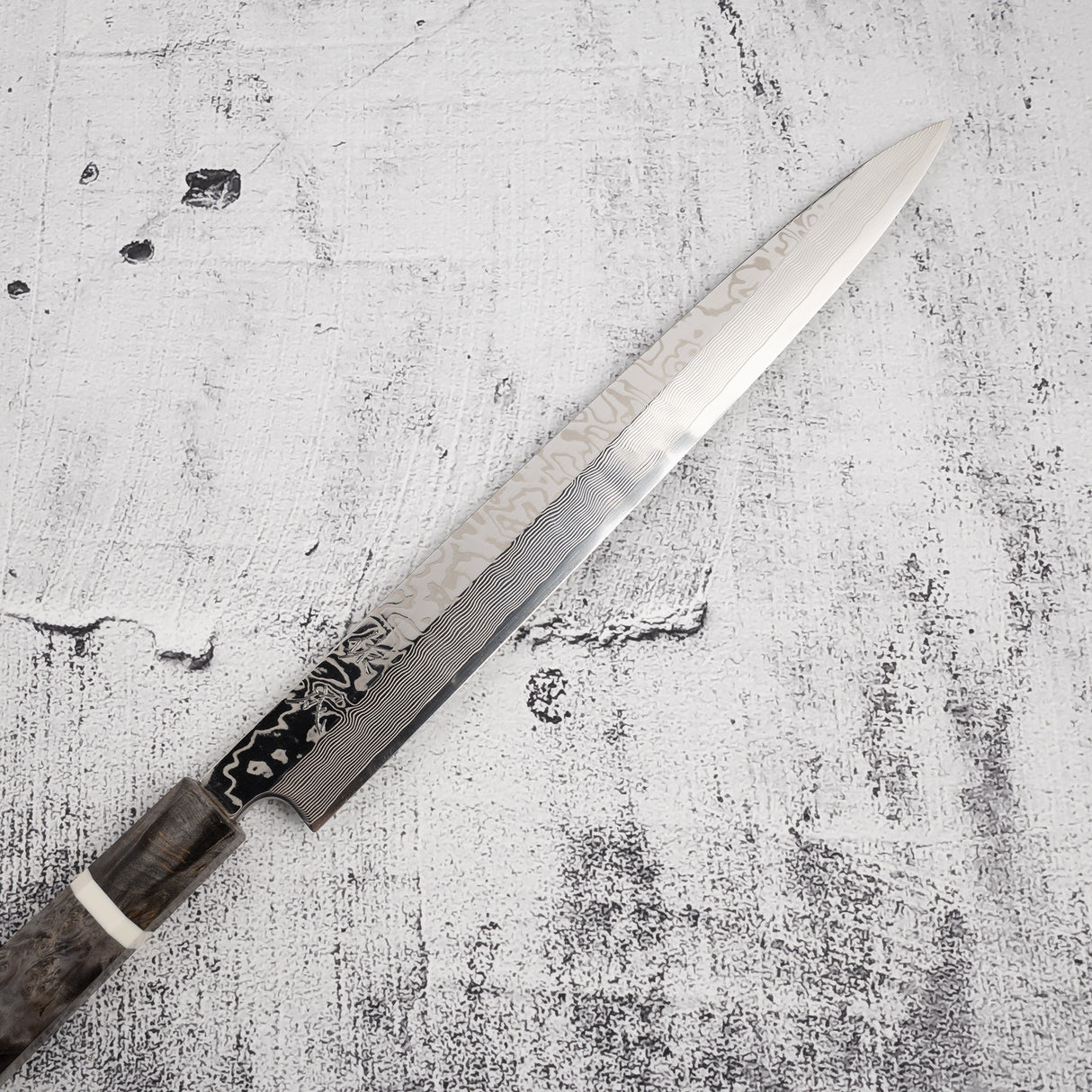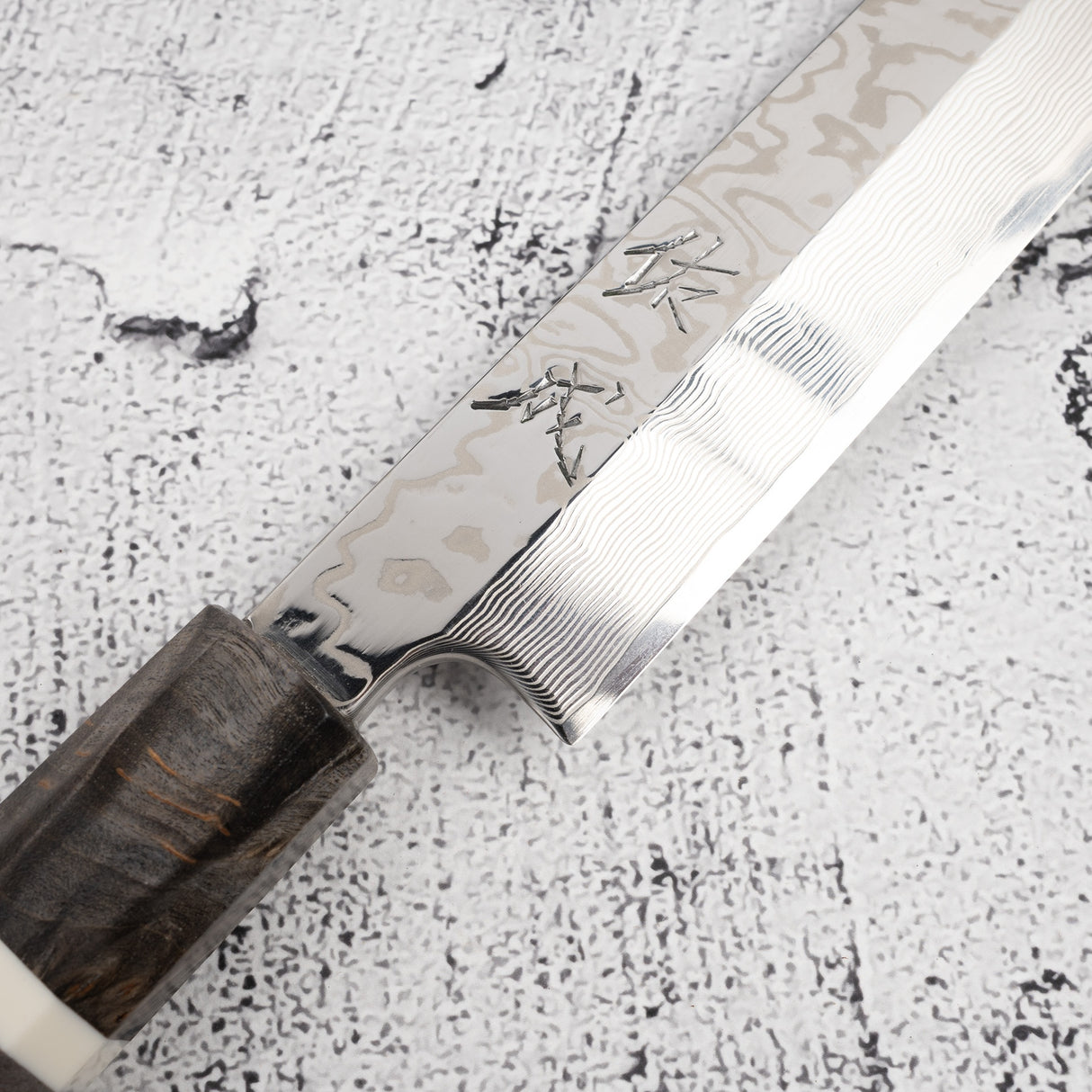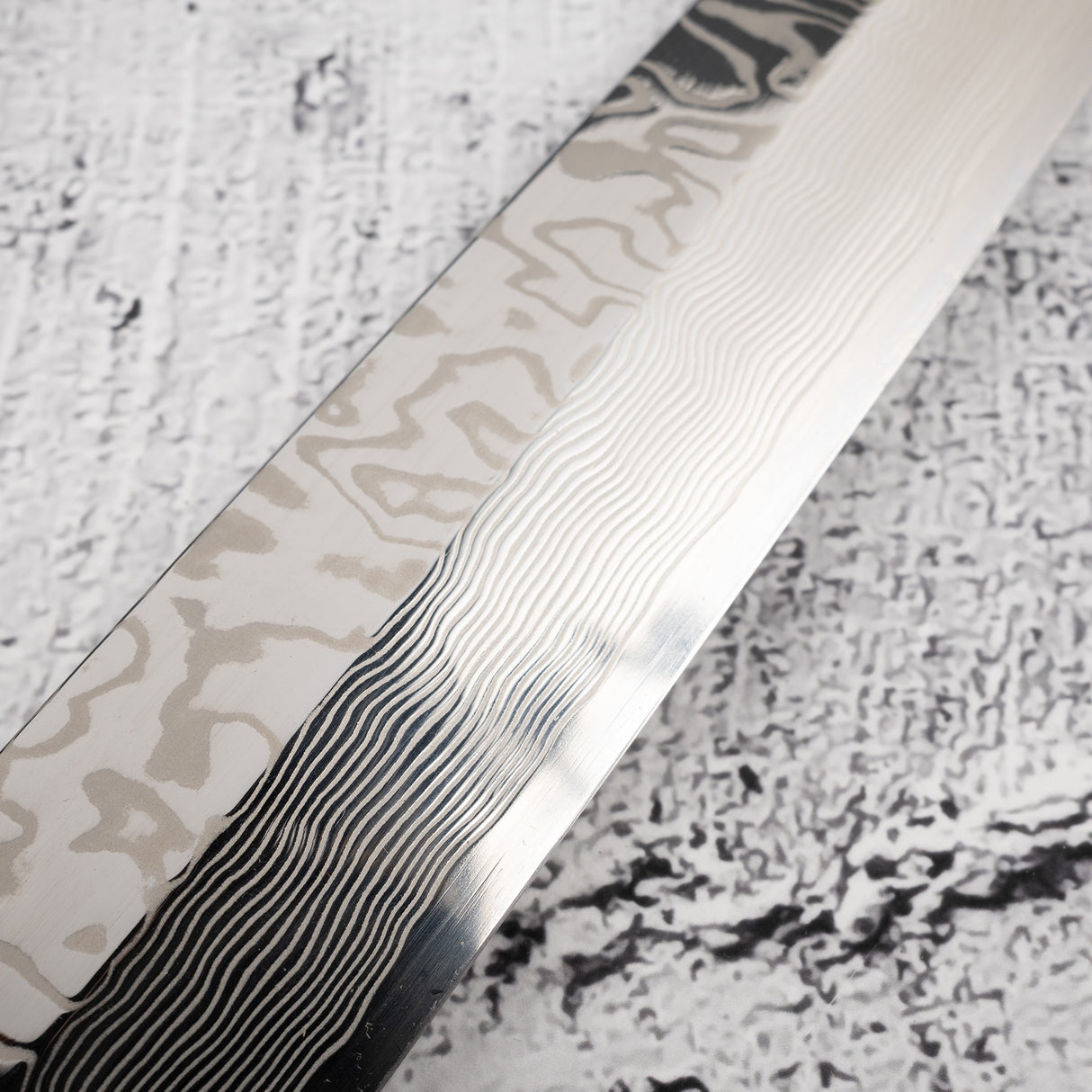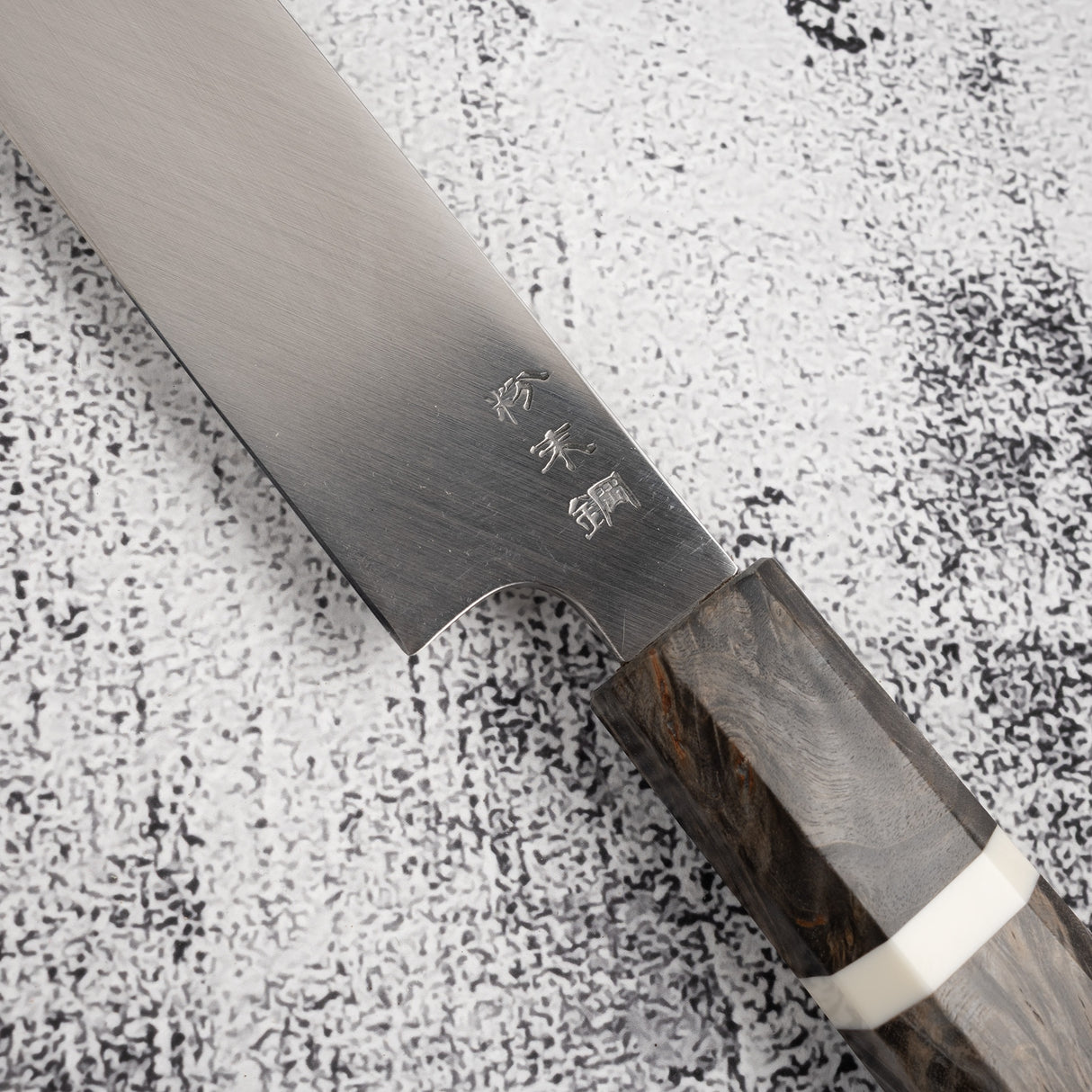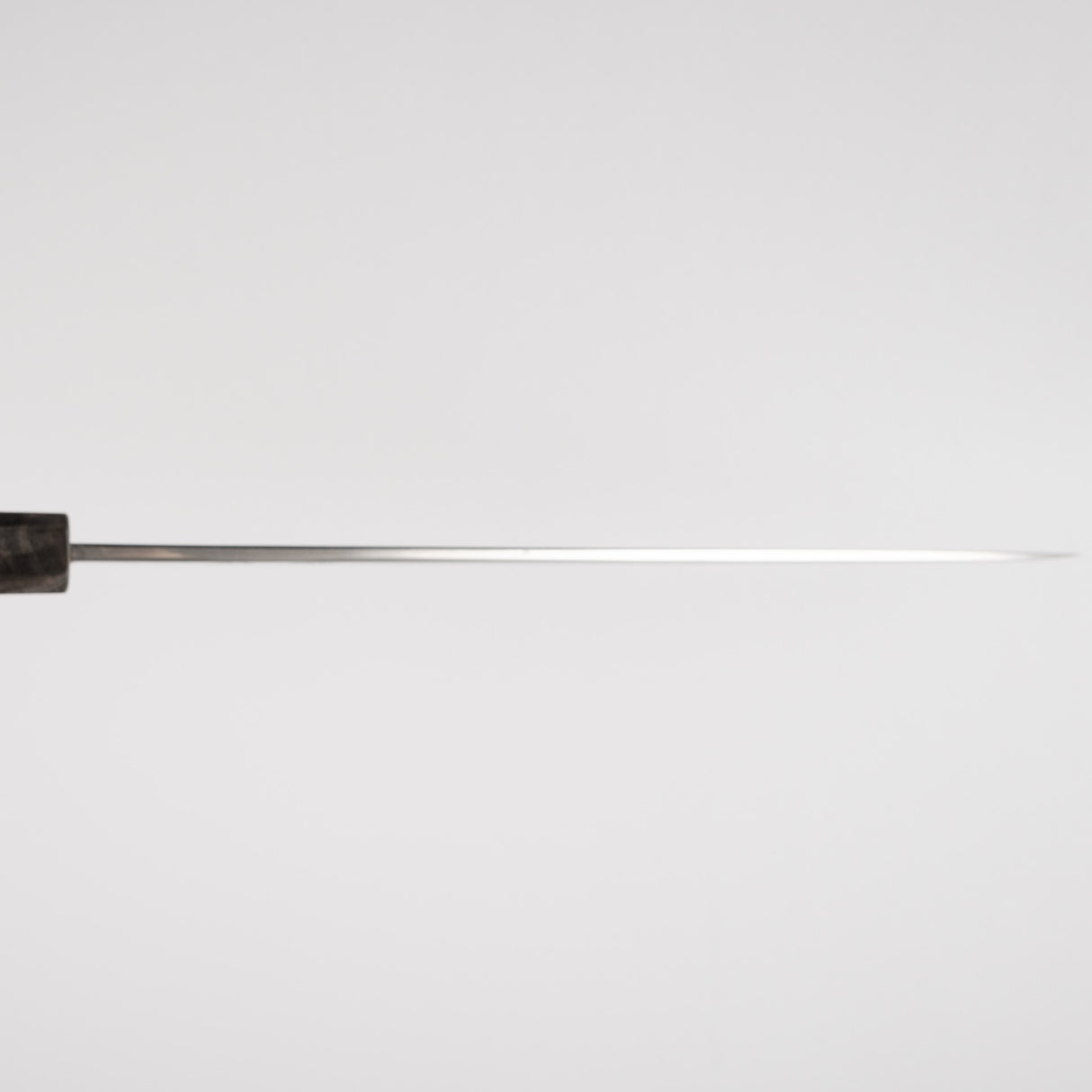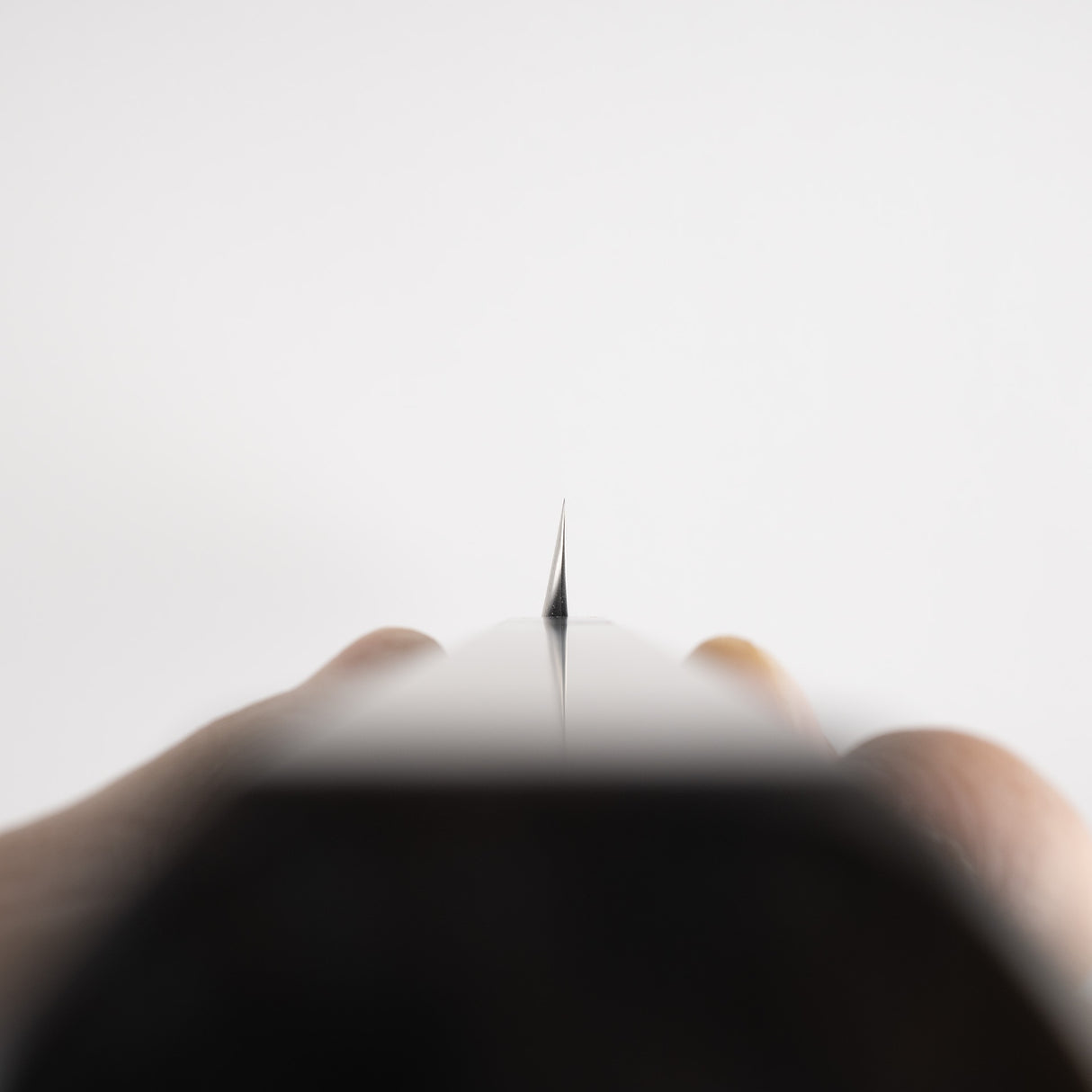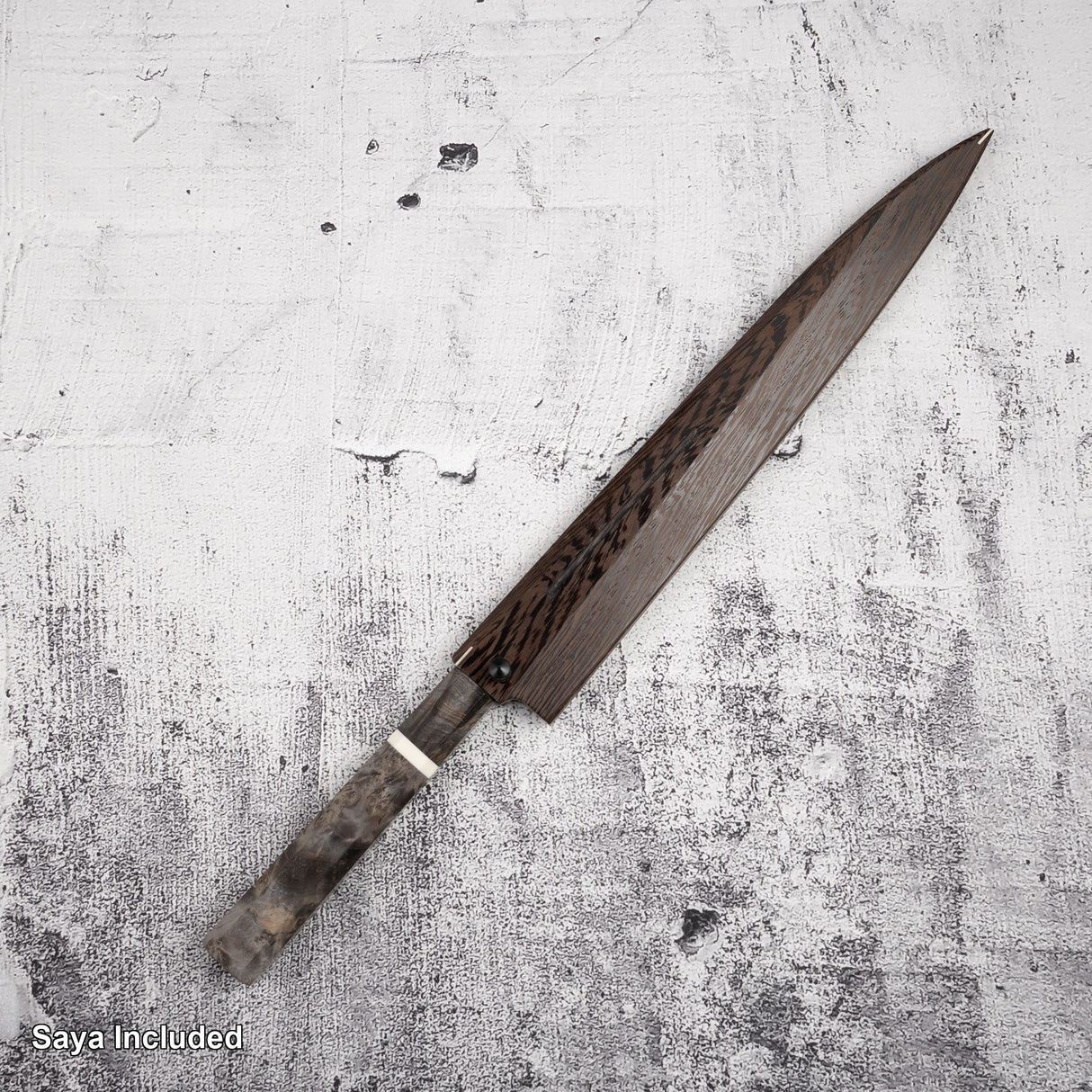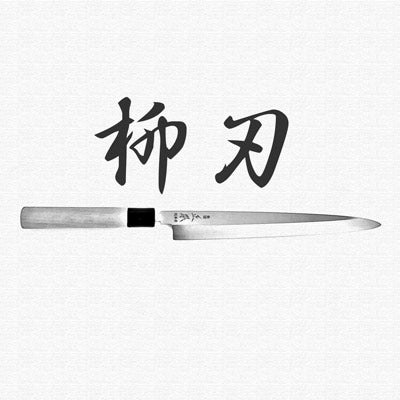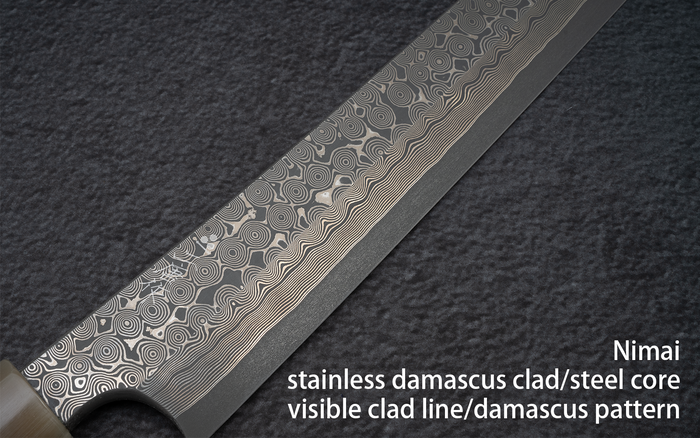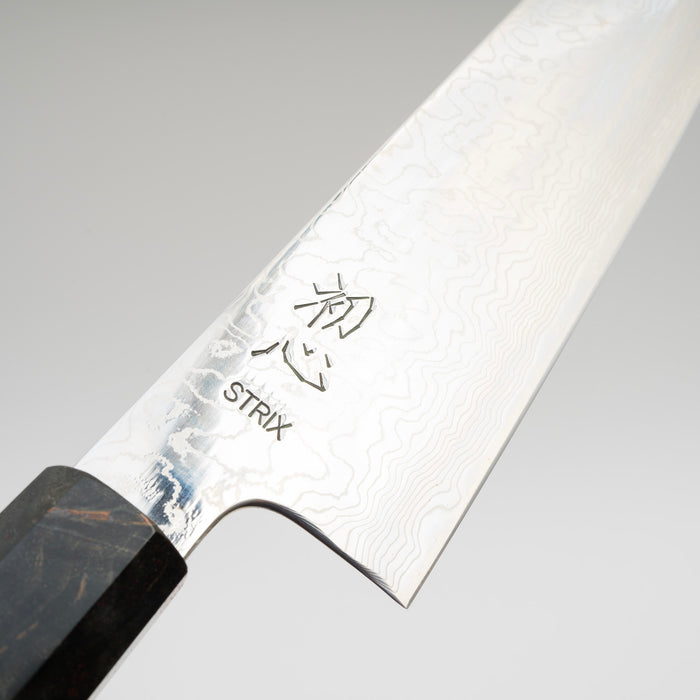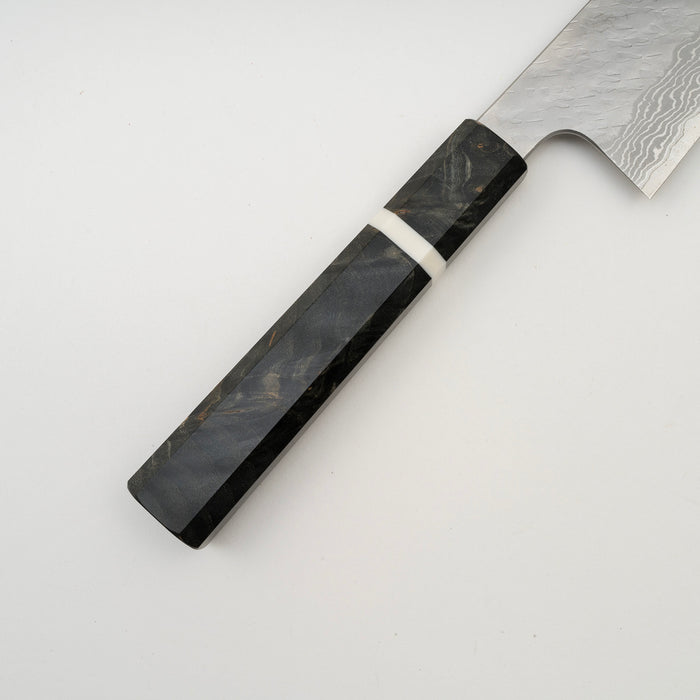Sukenari | SKU:
SK-SRNMDM-Y270BR
Sukenari SRS-13 Damascus Yanagiba 270mm Mirror Polish with Saya
Regular price
$1,349.95
Unit price
/
Unavailable
Sukenari SRS-13 Damascus Yanagiba 270mm Mirror Polish with Saya is backordered and will ship as soon as it is back in stock.
Couldn't load pickup availability
Detailed Specifications
| Line | Sukenari SRS-13 Ni-Mai Damascus |
| Profile | Yanagiba |
| Bevel Type | Single Bevel |
| Weight | 223 g | 7.9 oz |
| Edge Length | 262 mm | 10 5/16″ |
| Heel Height | 31 mm | 1 7/32″ |
| Width @ Spine | 4.3 mm | 11/64″ |
| Width @ Mid | 3.3 mm | 1/8″ |
| Width @ 1cm from Tip | 1.3 mm | 3/64″ |
| Steel | SRS-13 | Powdered | Stainless |
| Blade Construction | Nimai- Stainless Damascus Clad |
| Hardness (HRC) | 63 - 64 |
| Surface Finish | Mirror Polish |
| Handle | Octagonal Birch Burl with Spacer |
| Region | Toyama |
| Best for |
|
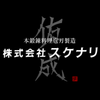
| Pros | Cons |
|
|
|
Care Instruction
- Don't cut hard things! Japanese knives are brittle so bone hacking is a NO NO!
- Wash with neutral detergent after use, and wipe dry;
- Please don't wash knife with dishwasher, it will damage the wood handle;
- Be careful not to leave the knife close to a heat source for a long time;
- It is a lot more dangerous to cut with a blunt knife than a sharp knife!
- It is best to sharpen a Japanese knife regularly on a waterstone.

